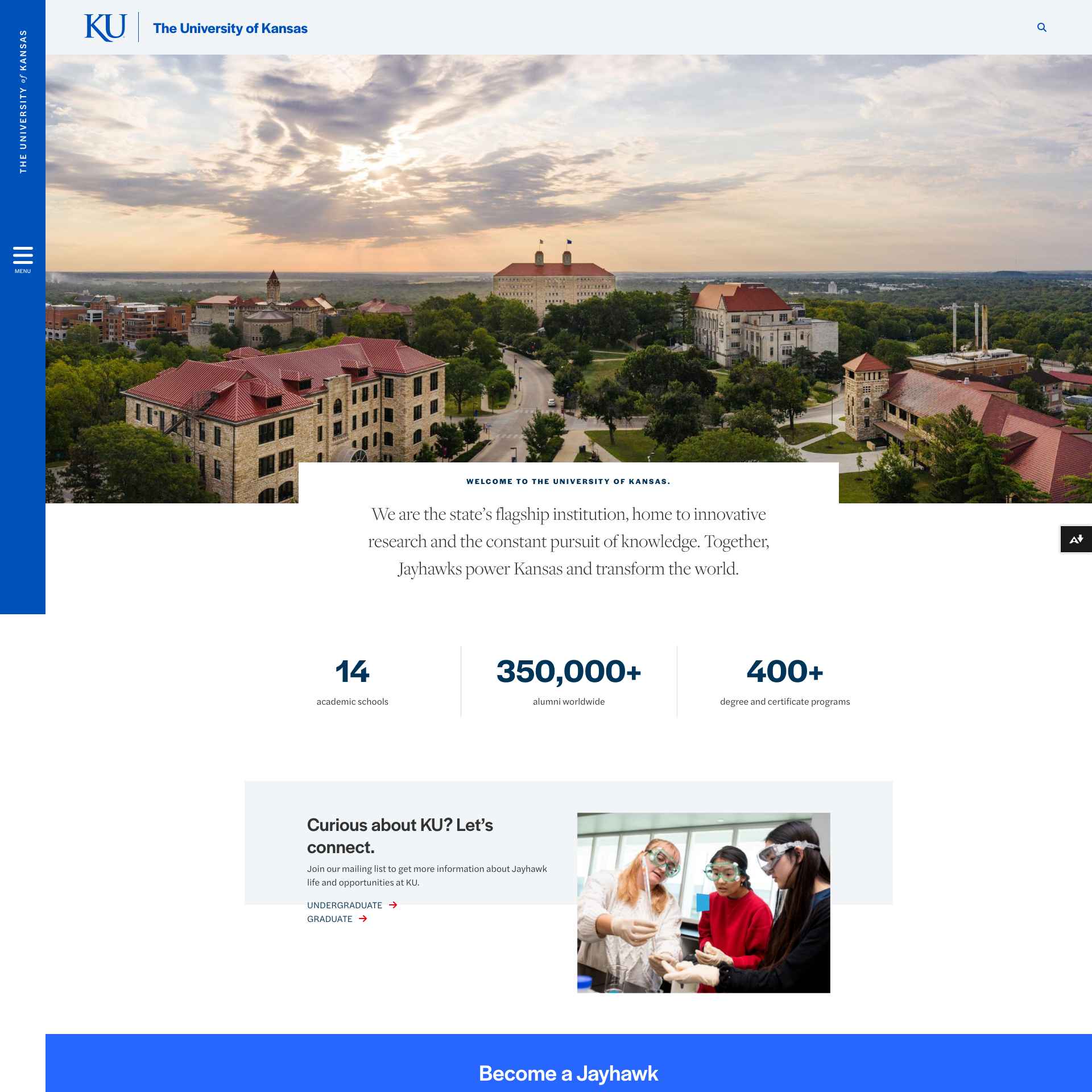In today’s fast-paced digital world, educational institutions are increasingly relying on their websites to provide students and visitors with essential information and support. The University of Kansas (KU) has taken a proactive approach by revamping their website (https://ku.edu) to enhance the online learning experience for their community.
KU’s website has undergone a significant overhaul, offering a user-friendly interface and easy navigation tools. The updated design ensures that visitors can quickly access crucial information, whether they are current students, prospective applicants, or alumni seeking university updates. The website’s streamlined structure allows users to effortlessly explore academic programs, faculty profiles, campus events, and key university resources.
The website’s standout feature is its focus on promoting online learning opportunities. KU has fine-tuned its online course offerings during the pandemic, and the website provides students with a comprehensive overview of these options. Additionally, the website includes virtual campus tours and interactive demonstrations to provide a glimpse of life at KU.
While KU’s website has emerged as a valuable resource for students, it faces competition from other renowned institutions. Institutions such as Harvard University and Stanford University have also invested heavily in their websites to provide seamless experiences to their students. Harvard’s website offers an extensive database of resources, including research materials and virtual libraries. Furthermore, the platform allows students to communicate with professors and peers via discussion forums and online chat options.
Similarly, Stanford’s website excels in its user interface and navigation tools, encompassing an abundance of academic and extracurricular information. The university’s focus on innovation and technology is reflected in its website’s cutting-edge features and its commitment to delivering an exceptional online learning experience.
In conclusion, the University of Kansas’ website (https://ku.edu) stands as a testament to the institution’s dedication to providing an enhanced online learning experience. While it faces formidable competition from universities like Harvard and Stanford, KU’s website effectively serves its students and community with its user-friendly design and comprehensive resources. As technology continues to shape education, institutions must adapt to ensure that their websites remain at the forefront of knowledge dissemination and student engagement.
Link to the website: ku.edu



